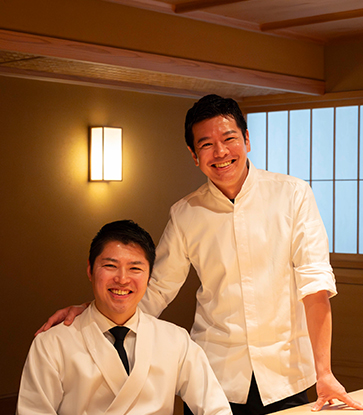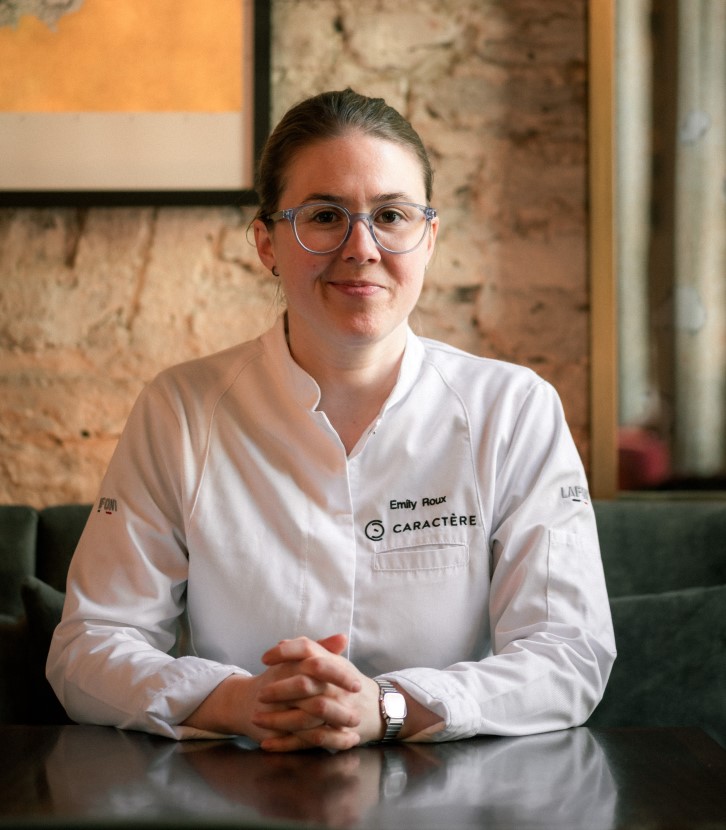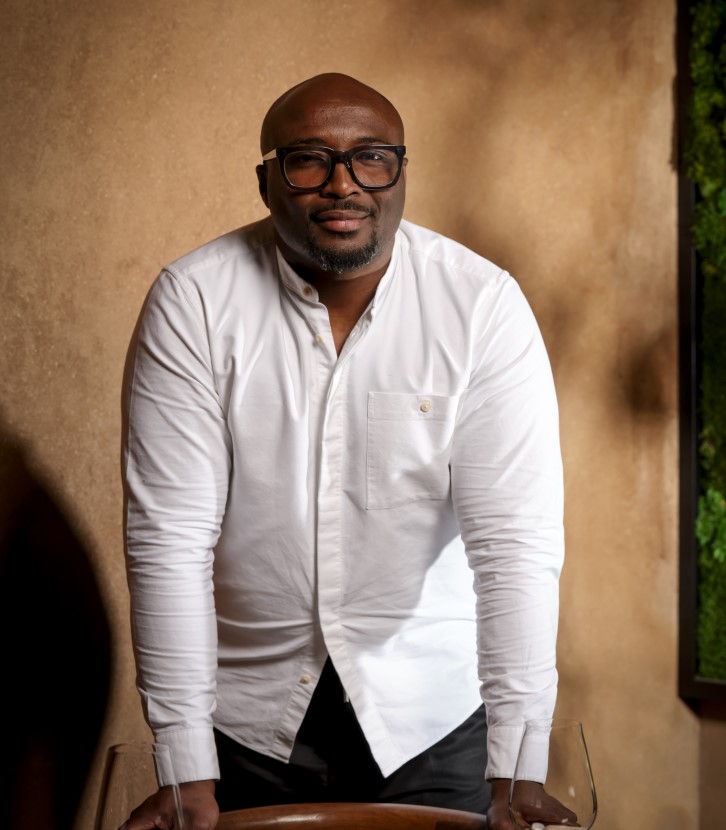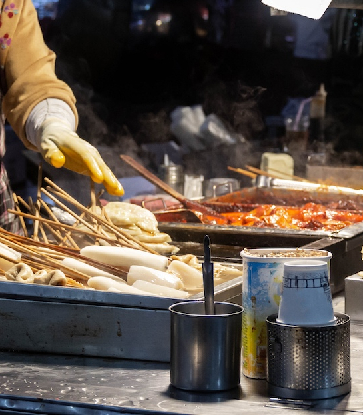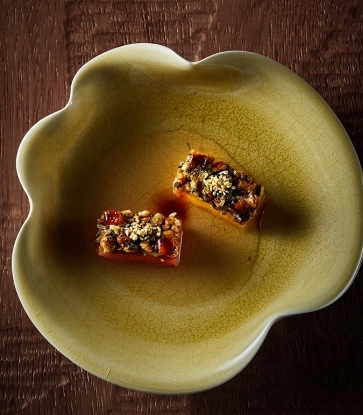The Japanese restaurant Kanda is located in a quiet residential area of Moto-Azabu. Headed by Hiroyuki Kanda, MICHELIN Guide Tokyo has listed it as a three-star restaurant for 15 years running, since 2008. Mr. Kanda is now a recipient of the 2021 Mentor Chef Award.
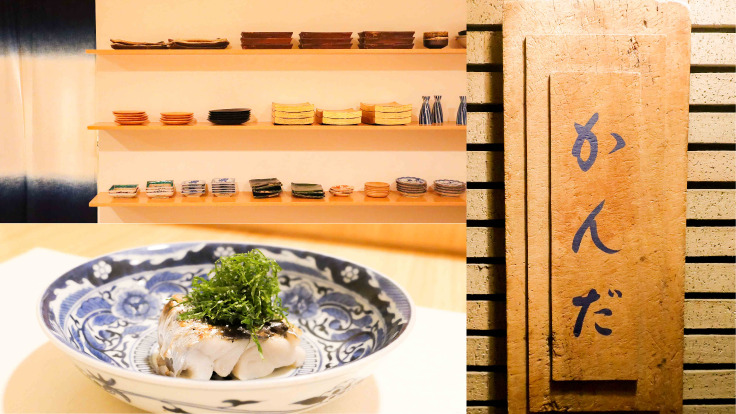
The Mentor Chef Award is awarded to chefs who can model their work and career. He devotes himself to the development of posterity, gives enthusiastic advice as a leader, and contributes to the development of the restaurant industry. It already appears in other editions of the MICHELIN Guide, and was recently included in the Japanese edition.
He wears many hats as a chef and mentor. On the day of the interview, he was right in the middle of preparations. We were surrounded by the delightful sounds of chopping and the aroma of dashi.
Mr. Kanda’s roots lie in his home prefecture of Tokushima. He was raised in a family that ran a Japanese restaurant and chose to follow the same path. After training in Osaka, he went to France and served as head chef at a restaurant there. Upon returning to Japan, he worked as a lecturer at a culinary school whilst training, and in 2004, he opened Kanda.
More recently, he established the agricultural non-profit FUUDO with some colleagues and is engaged in activities to think about rice and the future of food. Mr. Kanda has trained many chefs whose restaurants have gone on to be featured in the Michelin Guide, including Sorahana, which was first listed in the 2022 edition, Kutan, Towa and Ken Anhe , a one-star restaurant featured in the Taiwan edition of the MICHELIN Guide in 2021.

Having a clear perspective on life
When mentoring his apprentices, Mr. Kanda seeks to help them clarify their perspective on life. “I ask them when they want to go out on their own and have them set a goal ahead of time. Much of my advice centres on achieving a goal. Time is limited. If you don’t have a goal, you’ll end up falling into a mundane routine.”
He also says it’s important to envision a rival. “Their true rivals are those of their own generation who have their own restaurants when they open theirs. You always set your eyes on what lies ahead and can’t get caught up in the hierarchy of their restaurant. I tell them clearly that if they lack ambition, they will fail when they make their debut.”
At the same time, he tells the kitchen staff to put themselves in the customer’s shoes. He wants his employees to feel comfortable building each other up. Value is placed on relationships so that the team can work in an open environment. “If the focus is on not upsetting me or the more experienced employees, the dishes will be off kilter. The most important thing is to be attentive to the customer and prepare dishes for them, and not to worry about what the other staff members might be thinking.”
His passion for the dishes is evident. “Eating and preparing delicious food is a very precarious balancing act. If you are distracted even a little bit, it will fall over. Concentration, stamina and energy are important.”
He has been cooking and dealing with customers for many years, so his words hold weight.
While strict, he also smiles and speaks with candour. “You can’t get away with mediocre food. It has to be remarkably delicious. It’s because customers raise the bar that I’ve received this award.”


Turning point as a mentor
Mr. Kanda’s turning point as a mentor came when he was a lecturer at a culinary school. At the time, he was young and wanted to be liked. He says he was as friendly as he could be to the students, but he failed to teach them how difficult the real world was. Half of the graduates ended up throwing in the towel quite early on. Reflecting on that time, he says, “It was fun, but I regret that I didn’t make the time worthwhile for them.”
He feels the responsibility to instruct in a way so that someday his apprentices can look back and see that they are where they are because they went through challenging times. For Mr. Kanda, this humbling experience has become the basis for how he interacts with his staff.
“Nutrients are found in the soil, and therein lies the future. I hope to preserve the soil for future generations.”
Going beyond the kitchen, Mr. Kanda is also taking action for the future. He established the agricultural non-profit FUUDO and harvests rice with his colleagues every year. He also uses that rice at his restaurant. “FUUDO” is a portmanteau of the Japanese words for wind and soil. It comes from the thinking that food is a blessing they provide.
“We stress how important it is to work in the soil and that way to learn how valuable it is. If we don’t preserve the soil, our dietary habits will be thrown into disarray, and chefs will be unable to make a living. This is why I want to keep the soil healthy.” FUUDO is also a place where chefs of the same generation share information and recognize rivalries. Creating a forum for the younger generation to interact and unite for the future of food is one way he mentors.

“I want to create authentic Japanese dishes that you can only get in Japan. Japanese deliciousness is found in clear dashi and hot tea.”
At the end, he talked about his vision as a chef. “In these times where information and videos are at our fingertips, I feel that we are going to go a step beyond internationalization to where all genres of cooking are combined. You might call it fusion or patchwork. Ultimately, people’s taste preferences are similar in New York, London, and Tokyo where the weather, temperature and humidity are about the same.”

In the midst of this, he seeks to create pure Japanese cuisine. Dashing off to the kitchen, he boldly proclaimed, “I want to preserve authentic Japanese dishes that you can only get in Japan. In Japanese, you write delicious as ‘beautiful flavour.’ I want to create dishes that revolve around the deliciousness of rice, dashi and chargrilled fish.”
Mr. Kanda places importance on the initiative of young chefs and puts up guideposts for them to spread their wings. This respect for people overlaps with his philosophy of cooking, which is to draw out the natural flavours of the ingredients. There is consistency in this aesthetic. This stoic approach to Japanese cuisine serves as a message to future generations that daily training will pave the way for the future.
We look forward to Mr. Kanda’s future activities as a chef and mentor.
Restaurant to associate with: Kanda



